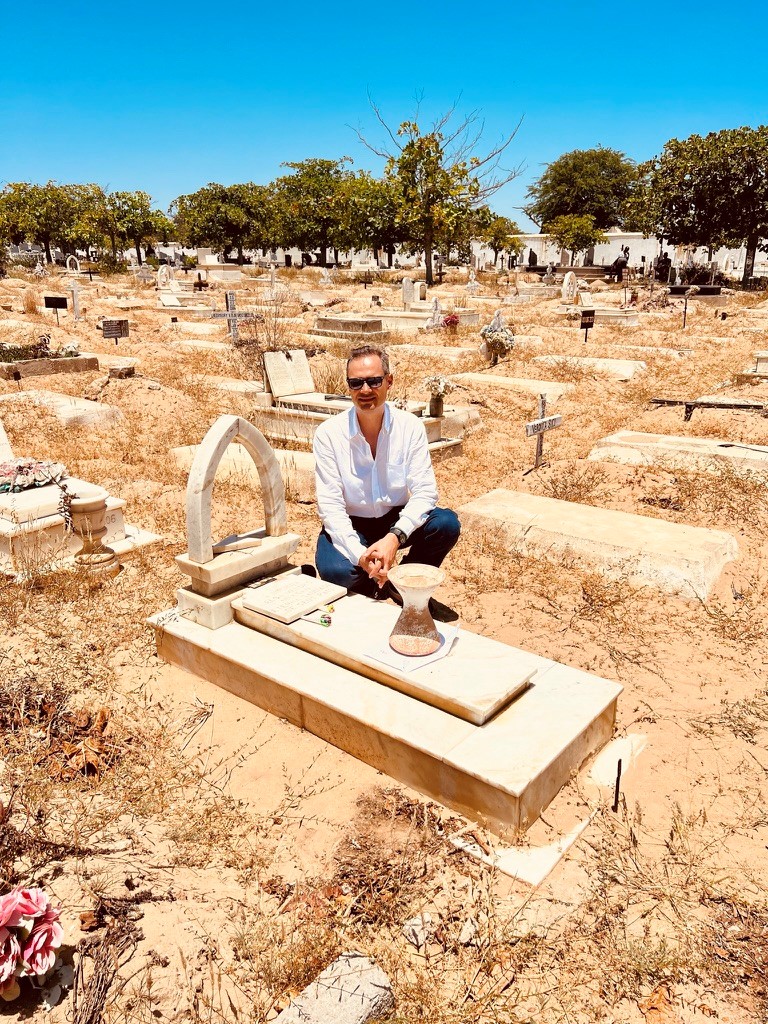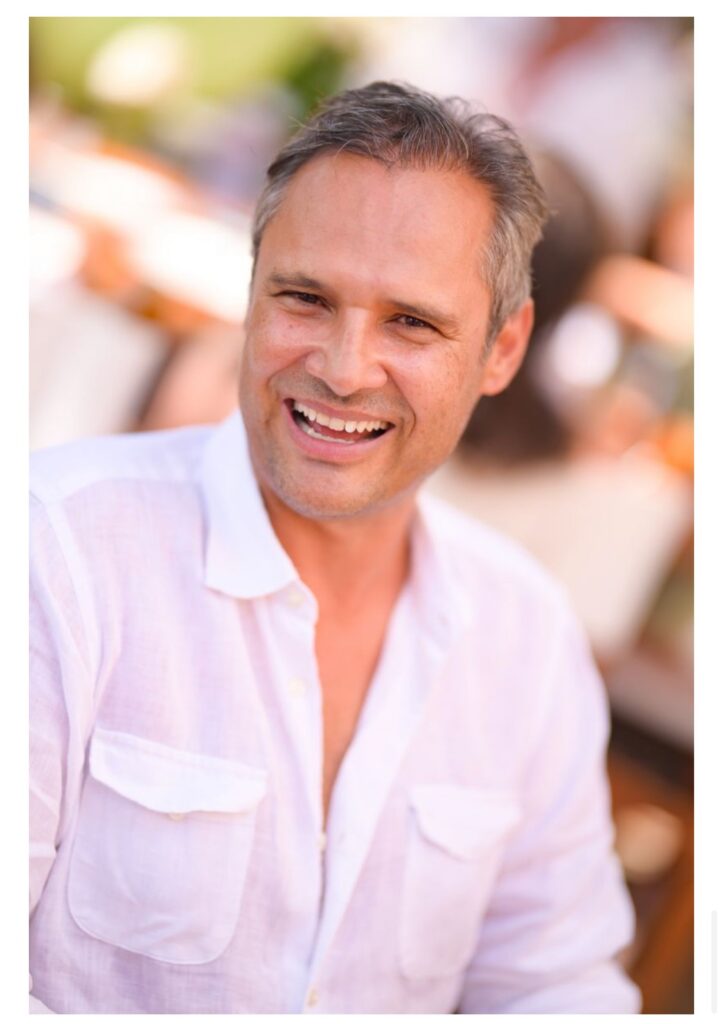In an interview with Malaria No More, entrepreneur, Lars Fjeldsoe-Nielsen, discusses funding research for malaria control in Angola, as well as work on patents for genetically modified mosquitoes.
Can you tell us about your background and how you got interested in malaria research?
Fjeldsøe-Nielsen: I grew up in Africa, as a war refugee from Angola. We left 48 years ago due to the Civil War there. So, I've grown up aware of malaria all my life but there were always preventative medicines we would take as well as mosquito nets available.
But in 2022, after my father's passing and recording his life, I wanted to get back to Angola. There was unfinished business. My sister had died there as a child many years ago, but when I went back to find her grave, we realized she had died of malaria.
It was a shock to us because we never really knew. So, the battle against malaria suddenly became personal. Through my experience, I was inspired to put together a podcast documentary. The objective was to create awareness. I don't think that we, as a society, can just sit back and not do more. We have a responsibility.
Fighting malaria is symbolically like climbing Everest. It feels impossible, but it is possible.
Ironically, you were already working on malaria research before you found out about your family connection to the disease. Can you tell us more?
Fjeldsoe-Nielsen: I'm a technologist by background as I was part of the early teams scaling Uber and Dropbox based in Silicon Valley. Since then, I’ve transitioned to venture capital. During this journey, I had seen what companies were doing with gene editing of animals and plants. But I have also always had a big problem with mosquitoes. And then it just came to me during Covid 19. What if you could see which were good or bad mosquitoes? Which mosquitoes were carrying malaria? So, I thought, what if you could take some technologies that already exist today, such as Gene drive for example, and use them to make mosquitoes light up like fireflies, where they are translucent when carrying malaria. I think it could really help on a practical level!
After my father’s passing, I filed a patent for this innovation: a genetically modified mosquito that lights up if it carries malaria. But the big thing is that by working on this project, I'm really creating awareness around malaria as to how complex an issue this really is. There are many moving parts across the different stages of the battle against malaria from prevention to cure.
As a self-described ‘tech guy,’ what role does technology play in malaria research?
Fjeldsoe-Nielsen: It potentially plays a big role in conjunction with other key initiatives. As an example, you're seeing the impact of technology with the development and discovery of new drugs using AI and quantum computing. There is a lot of R&D being put into using technology to accelerate the cure for cancer and major diseases. Using data in smart ways can really lead to new discoveries but it also goes beyond the drug discovery phase. If you have the right data, I think it can be an important part of the puzzle sequencing and prioritizing projects, and I'm really excited about that potential too.

You’re currently fundraising for malaria research with an upcoming climb of Mount Kilimanjaro. Can you tell us about it?
On October 21st, 2024, I’ll start climbing Mount Kilimanjaro, the highest peak in Africa, standing at nearly 20 thousand feet high. It’s a daunting task but also the next chapter after my fundraiser events climbing the Matterhorn a year ago and my five thousand kilometers motorcycle trip from London to the Sahara Desert. Not only will this be another personal challenge, but it is also an opportunity to raise awareness and funds for the fight against malaria. This initiative is raising money for malaria projects in Angola. As you know, Angola is near and dear to my heart as my family is from there and especially after learning I lost my sister to malaria.
When I went back to Angola, I spent time with the U.S. President’s Malaria Initiative (PMI) team, and they identified several key research topics that address gaps in current knowledge to improve malaria control and elimination in Angola. So, this climb is a fundraiser to help sponsor a PhD and critical research projects in the fight against malaria in Angola in partnership with the nonprofit Population Services International (PSI). I encourage everyone to donate and support more research, but also to help honor the memory of my sister Else.
What would you tell people who are considering donating to malaria research?
Fjeldsoe-Nielsen: Malaria ranks amongst the deadliest infectious diseases alongside HIV/ AIDS. Every year hundreds of thousands of people die, the majority kids in Sub Saharan Africa. The economic and social impacts are also significant but hard to measure. Yet if you were to ask most people on the street in the Western World, Malaria is not regarded as a life-or-death issue, but instead something you can take a pill against if you travel. I want to change this awareness issue.
In addition, when you consider the future and the changing climate, data suggests malaria could spread significantly including Europe and North America. The mosquito itself is spreading to areas where it wasn't before because of the environment changing around us, the weather changing and so on. At the same time, the mosquito species itself is changing and becoming resistant to pesticides as well as changing its behavior according to Darwinian theory. So, this is not just a distant problem—it's a looming global threat, and it’s coming faster than we think, unless we pay attention to it now. Just like smallpox was eradicated and polio is being prioritized by the Gates Foundation and others, my call to action is to support the organizations and people who are working on eradicating Malaria.

Listen to Fjeldsøe-Nielsen’s podcast, “Finding Home: A journey back to Angola” here.
Learn more about Fjeldsøe-Nielsen’s Kilamanjaro fundraser supporting PSI here.
###


